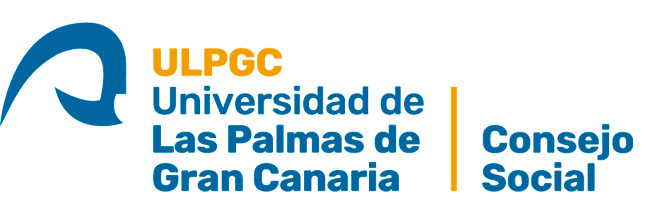Francisco Rubio Royo will coordinate a group of experts and professionals who will offer their vision of the future as a consequence of the Covid19 crisis.
This new model will be based on three interdependent ecosystems: Green, Blue and Orange.
The ULPGC Social Council has started up the ‘Canarias Importa’ [The Canary Islands are Important] initiative. The aim is for different prominent individuals from Canary Island society to create a framework for analysis and action, with the purpose of drawing conclusions directed towards designing a development model for the Canary Islands, with sights set on the new future which the Covid19 crisis has expedited.
The chairman of the Social Council, Jesús León Lima, presented this initiative during an extraordinary plenary session held last Thursday. It was very well received and highly rated by all present. León Lima highlighted the role of the Council as society’s participatory body in the University and explained that the aim of organising this space for consideration and reflection was for diversity to stimulate and provide the impetus for action. “We wanted to foster consideration and take action with regards to the future development model of the Canary Islands, fulfilling our responsibility as a meeting point and being aware of the need for a joint effort.”
In José León Lima’s view, following the crisis triggered by Covid19, Canary Island society is experiencing a period of uncertainty, fear, complexity and ambiguity, in addition to increasingly fast, profound and global change, which is disruptive and occurring more frequently.
He added that, for this reason, the ULPGC has taken the initiative of inviting “a group of people with knowledge, experience and a strong reputation for integrity, creativity and reflection, so that on the basis of our current situation they can offer us their vision of the future that the Canary Islands needs for current and future generations; a medium and long term future which gets ever closer” he explained.
Francisco Rubio Royo, honorary rector of the ULPGC, will be in charge of coordinating and driving the DCI (Canarias Importa Facilitators) team, which will comprise of: Miguel Ángel Acosta, Secretary General of the Social Council; Javier Arístegui, profesor of ecology at the ULPGC; José Manuel Baltar, former regional minister of health for the Canary Island government and healthcare management specialist; Patricia Barber, tenured lecturer at the ULPGC and senior researcher for the Health and Public Policy Economics Research Group; Jimena Delgado, former manager of SPEGC [the Organisation for the Economic Promotion of Gran Canaria] and former chairman of the ZEC [Canary Islands’ Special Zone], expert in public administration, and innovation and internationalisation management; Natascha García, manager of ADEPSI; Beatriz González López-Valcárcel, professor of health economics at the UPLGC, head of the Health and Public Policy Economics Research Group; José Juan González, managing director of CANARAGUA; Manual Lobo, former rector of the ULPGC and professor of modern history at the ULPGC, Rafael Pérez, professor of signal theory and communications at the ULPGC, head of the IDeTIC [Institute for Technological Development and Innovation in Communications] university institute; Ana Suárez, executive director of the Germán Suárez Investments Group and vice chairman of the ULPGC Social Council; Lourdes Trujillo, professor in Economics at the ULPGC, head of the ULPGC port-maritime organisation [Cátedra Marítimo-Portuaria], and Edu William, entrepreneur, Corporate Venture Builder and associate lecturer with a doctorate at the ULPGC.
As Francisco Rubio Royo explained to members of the Council, the new development model which the Canarias Importa’s team of facilitators will drive is grounded in the synergy between a three-way sustainable ecosystem: Green/Blue/Orange, taking into account that, from this moment on, health and wellbeing are required in all policies. “These three ecosystems need the highly in demand tourism and elderly, or so-called ‘silver economy’, sectors, which serve to facilitate and provide impetus, and where we are already experienced, well-known and recognised, with knowledge of how to do the job in question”.
The three ecosystems at the core of this project also require new responsibilities, knowledge, values, skills, resources, and abilities through the following supporting and cross-cutting areas, each with their own distinct identity and level of development which, in the words of Rubio Royo “will have to be promoted and adapted”. The areas in question are: talent (education), healthcare, logistics, technology, and social wellbeing: inclusion and diversity.
The honorary rector of the ULPGC and DCI facilitator believes that the Canary Islands should aspire to excellence and recognition in the three ecosystems. “Our attitude, ability and commitment will ground us in reality. We understand that it will be very difficult for us to achieve this [excellence and recognition] in all three ecosystems, but we will make progress in them and the results we obtain will make it possible for an ever larger social commitment, with a model for the future which will be ours and not imposed upon us”.
The chairman of the Social Council noted that the document containing the conclusions of this initiative will be presented, in no more than eight weeks, to public authorities, political, economic and social stakeholders, as well as to the general public.


